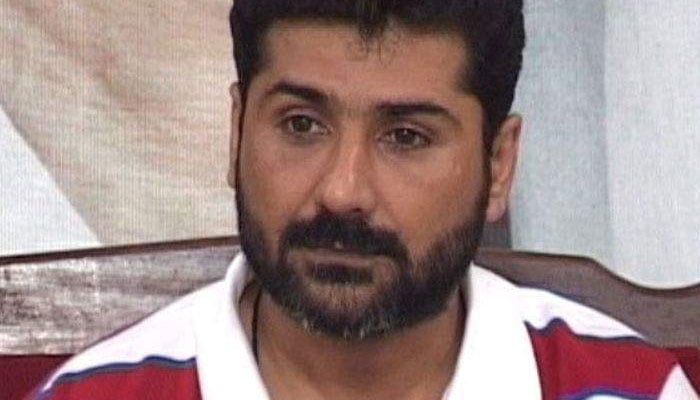Is a ‘confession’ enough to bring down Uzair Baloch and co?
Uzair Baloch has made stark allegations predominantly against the PPP leadership and police implicating them as major beneficiaries of his purported criminal enterprise
A confessional document attributed to Uzair Baloch – the alleged kingpin of the Lyari gang war – had recently landed in an anti-terrorism court (ATC) in which he made stark allegations predominantly against the Pakistan Peoples Party (PPP) leadership and police implicating them as major beneficiaries of his purported criminal enterprise which churned millions of rupees monthly in extortion from Karachi.
The statement was recorded under the section 164 of the Code of Criminal Procedure (CrPC) in the court of a judicial magistrate at the City Courts in April 2016 – three months after the Rangers announced Uzair’s arrest in a raid in the outskirts of the city, contrary to the reports that he had been arrested two years ago in the United Arab Emirates by the Interpol.
In the document, Baloch has been quoted as saying that just from the Fishermen’s Cooperative Society (FCS) – a semi-government organisation that oversees the operations at the fish harbour in the city, which is the biggest seafood market of Pakistan – he earned Rs2 million per month through extortion while PPP’s women wing president and sister of former president Asif Ali Zardari, Faryal Talpur, received ‘crores’ (tens of millions) per month.
The alleged gangster added that he also maintained ‘friendly’ relations with police officers, including former top cop of Karachi Waseem Ahmed who later served as the director-general of the Federal Investigation Agency, former head of the Special Investigation Unit Farooq Awan who recently served as the campaign manager for PPP candidate Qadir Khan Mandokhail in the NA-249 by-poll, and his brother Shahdat Awan, a senior lawyer who served as the prosecutor general in Sindh.
The confessional statement further reads that due to his connections in the PPP with former Sindh home minister Zulfiqar Mirza, MNA Qadir Patel and former senator Yousuf Baloch, all police officers in Lyari were practically appointed by him as well as the directors of the FCS because he wanted the authorities to look the other way from his criminal enterprise that depended on extortion, drugs sales and gambling. He added that the PPP leadership used him to encroach upon land and businesses as well as to extort money from traders and other people in exchange for saving him from the clutches of the law.
Later in the statement, he also confessed to killing people, including law enforcement agencies’ personnel, elected representatives, businesspersons and rival gang members.
Although this is an explosive statement, its credibility or to be more precise maintainability in the court of law hangs in balance since he has already retracted from it, saying that he never made such a confession and this story was a bunch of lies.
To counter check this claim, the ATC-XVI has already summoned the judicial magistrate, who recorded this statement, in the court to depose his testimony.
The News spoke to the defence and prosecution lawyers as well as independent experts to know of their opinion on how the law will deal with this situation. Most of them were not so hopeful about the confessional statement holding its ground. They said that when it came to convicting someone, courts depended on evidence, be it direct, ocular or circumstantial evidence.
Advocate Abid Zaman, who is the attorney for Uzair, opined that the so-called confessional statement would become null and void as the defendant in his statement under the Section 342 (power to examine the accused) of the CrPC would deny making it. “Such statements are usually taken under duress and therefore have no credibility except for making headlines,” Zaman maintained.
Special Public Prosecutor Sajid Mehboob, who is part of the Rangers legal team, argued that the confession was always voluntary and took place in the watch of a judicial officer who would in this case testify in the court about its authenticity. Mehboob added that there were precedents in which the accused were convicted on the basis of their confessional statements.
Mohammad Khan Buriro, a lawyer and former ATC judge, however, was of the view that the court would accept the confession only if the prosecution could bring some circumstantial evidence to support their case. “Otherwise, it will go to the bin,” he said, adding that even the magistrate who presided over this confession would appear in the court just as a prosecution witness.
Senior journalist Ishaq Tanoli, who has covered judicial system as a career, said that in the most cases of confessions, the accused deviated from their purported statements and after that, the prosecution had nothing but evidence to prove their cases.
“Even if accepted by the trial court, the appellate forums do not much rely on confessions. Remember the case of Asif Zaheer who was awarded life imprisonment by a trial court in the French engineers attack case. The Sindh High Court later set aside his conviction and ordered action against the magistrate who recorded his confession because there were many errors in the procedure,” Tanoli added.
-
 Jennifer Garner Drops Parenting Truth Bomb On Teens With Kylie Kelce: 'They're Amazing'
Jennifer Garner Drops Parenting Truth Bomb On Teens With Kylie Kelce: 'They're Amazing' -
 AI Is Creating More Security Problems Than It Solves, Report Warns
AI Is Creating More Security Problems Than It Solves, Report Warns -
 'Game Of Thrones' Prequel 'A Knight Of The Seven Kingdoms' New Ratings Mark Huge Milestone
'Game Of Thrones' Prequel 'A Knight Of The Seven Kingdoms' New Ratings Mark Huge Milestone -
 Apple Seeks To Dismiss Fraud Suit Over Siri AI, Epic Injunction
Apple Seeks To Dismiss Fraud Suit Over Siri AI, Epic Injunction -
 Delroy Lindo Explains The Crucial Role Of Musical Arts In Setting Up His Career Trajectory
Delroy Lindo Explains The Crucial Role Of Musical Arts In Setting Up His Career Trajectory -
 Timothée Chalamet Reveals How He Manages To Choose The Best Roles For Himself
Timothée Chalamet Reveals How He Manages To Choose The Best Roles For Himself -
 Princesses Beatrice, Eugenie’s Conflict Gets Exposed As Mom Fergie Takes Over The Media
Princesses Beatrice, Eugenie’s Conflict Gets Exposed As Mom Fergie Takes Over The Media -
 Kate Middleton Plays Rock-paper-scissors In The Rain
Kate Middleton Plays Rock-paper-scissors In The Rain -
 Lindsay Lohan On 'confusing' Teen Fame After 'Mean Girls': 'I Should Have Listened To My Mom And Dad'
Lindsay Lohan On 'confusing' Teen Fame After 'Mean Girls': 'I Should Have Listened To My Mom And Dad' -
 Savannah Guthrie Mom Update: 'Today' Show Sees Huge Ratings Boost Amid Search For Nancy Intensifies
Savannah Guthrie Mom Update: 'Today' Show Sees Huge Ratings Boost Amid Search For Nancy Intensifies -
 Hillary Clinton To Testify In Epstein Probe Alongside Bill Clinton
Hillary Clinton To Testify In Epstein Probe Alongside Bill Clinton -
 Meghan Markle, Prince Harry End Jordan Trip With Meaningful Hospital Visit
Meghan Markle, Prince Harry End Jordan Trip With Meaningful Hospital Visit -
 AI Boyfriends Gain Popularity In China As Young Women Turn To Virtual Romance
AI Boyfriends Gain Popularity In China As Young Women Turn To Virtual Romance -
 Prince William Receives Reality Check As His Media Strategy Fails
Prince William Receives Reality Check As His Media Strategy Fails -
 Zach Braff Reflects On Doing Odd Jobs Ahead Of Major Career Breakthrough In 2001's 'Scrubs'
Zach Braff Reflects On Doing Odd Jobs Ahead Of Major Career Breakthrough In 2001's 'Scrubs' -
 Google Rolls Out Nano Banana 2 With 4K AI Image Generation
Google Rolls Out Nano Banana 2 With 4K AI Image Generation




